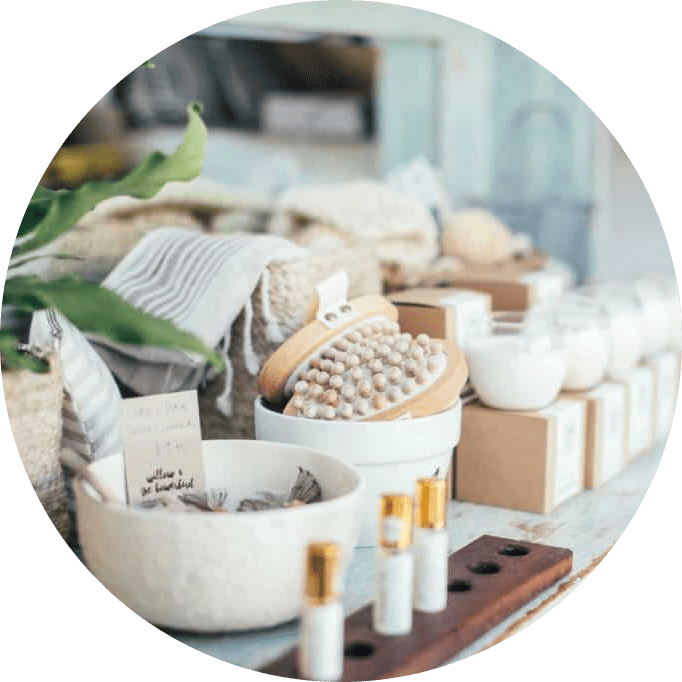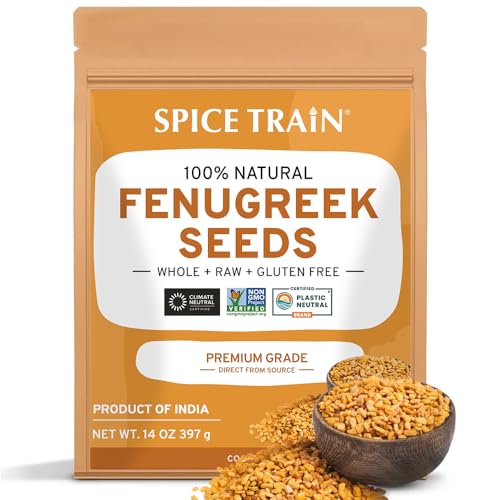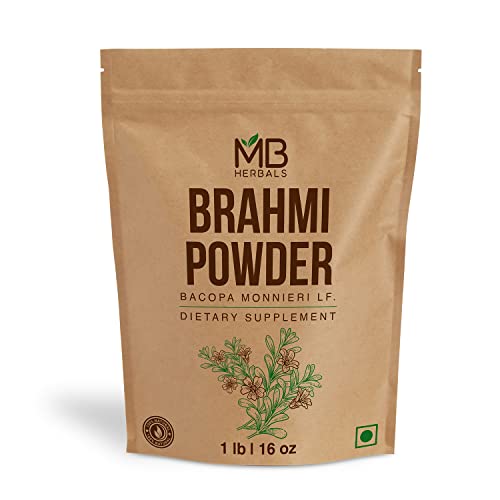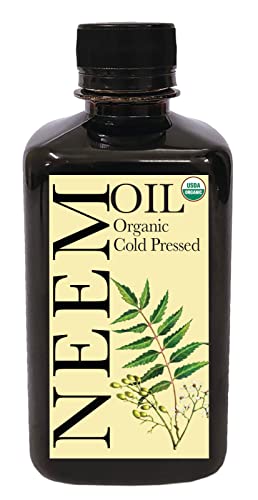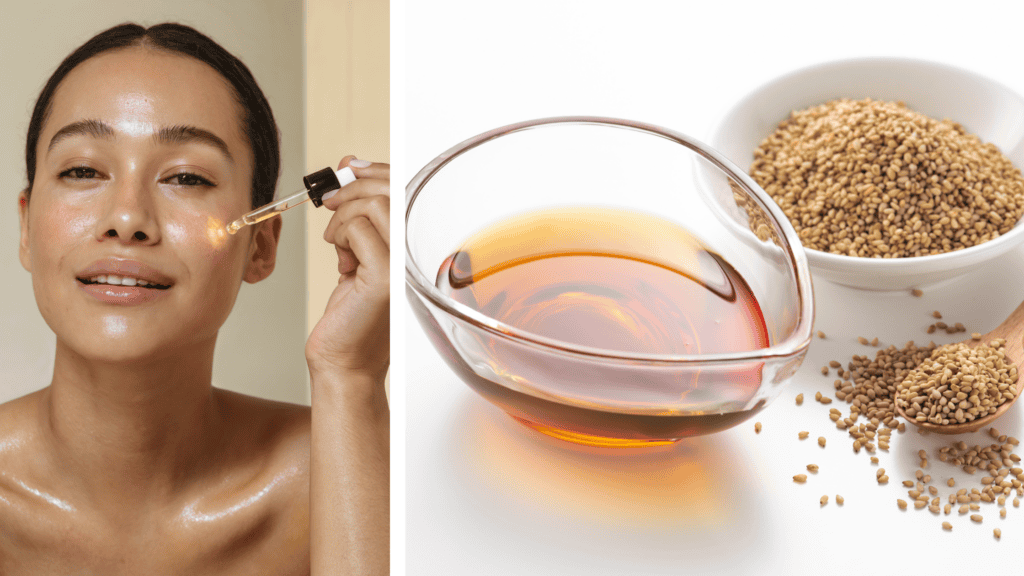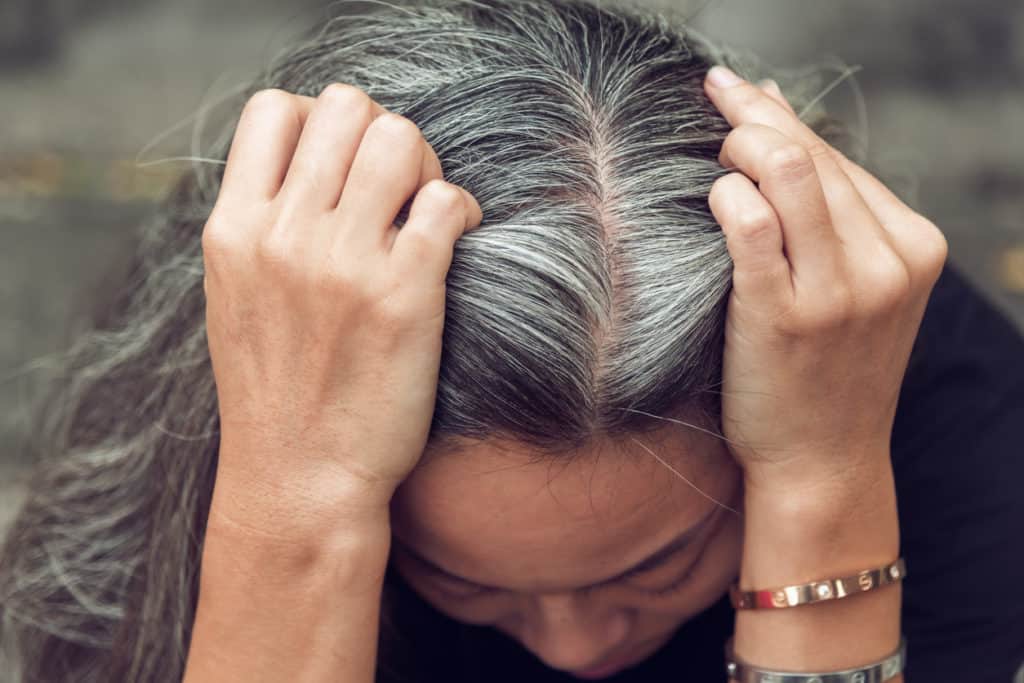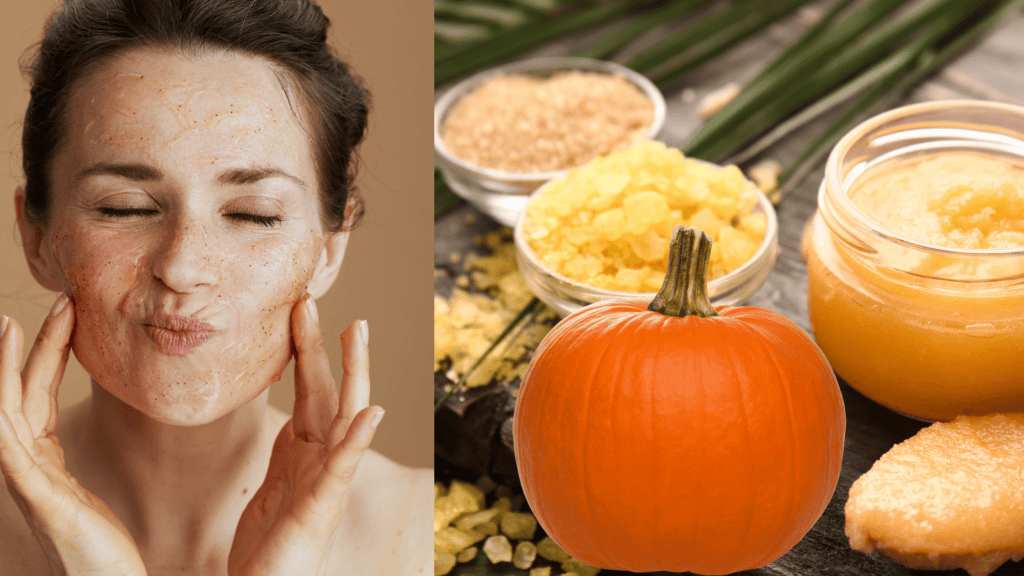Healthy, strong hair is a marker of good health. It dramatically impacts our sense of self and confidence. As more people search for natural remedies for their hair, the herbs used for centuries in Ayurvedic practices are becoming increasingly popular. Throughout the centuries, many Ayurvedic herbs promised thick, flowing, silky hair and are said to help stimulate hair growth and ease hair loss.
Ayurveda, an ancient whole-body healing system developed in India thousands of years ago, uses herbs, oils, and scalp massage techniques, among other things, to help heal all types of hair issues; they remedy hair loss, boost growth, and restore hair’s natural luster.
Herbs mixed into hair packs can significantly improve hair health, volume, thickness, and length. These herbs can give excellent results when taken internally or used externally. They are simple to apply and are now readily available.
Although there are numerous herbs to choose from and experiment with, some herbs are viral for stimulating hair growth, and their benefits can dramatically improve the hair’s look, feel, and health. These herbs include;
The Power Of Herbs For Growing And Maintaining Hair.
Discover the botanical benefits of these herbs for hair growth and how to use them for maintaining and growing your hair. If you suffer from thinning or balding hair, these Ayurvedic herbs are excellent for nurturing and improving hair at this delicate time.
The Hair Growth Benefits Of Henna.
Derived from the Lawsonia Inermis, Henna has been a natural plant dye for centuries. It provides a vivid orange/red color that, when mixed with plants such as Indigo or Cassia Obovata, can range from pale orange/blond to mahogany, dark brown, and black.

Natural plant dyes are an effective, nontoxic solution for hair dying. They have no ill effects, can completely cover grey, and have genuine benefits in strengthening the hair.
Henna dye glosses over the hair. It doesn’t damage it but instead bonds to the hair’s cuticle, filling in any weak parts. Think of the hair cuticle as roof tiles or fish scales, many of which are damaged. Henna can move into those damaged areas, making the hair more robust and resilient to breakage.
Henna can be used as often as necessary, unlike commercial hair dyes, which can damage hair. Each application adds another layer, making the hair look and feel thicker.
If you are looking for the benefits of Henna without the color, try buying cassia obovata*, often called neutral henna. Although it differs from Henna, it delivers similar strengthening and growth benefits!
Henna* will not harm hair, but be careful where you source it. It can contain contaminants, heavy metals, and salts if it isn’t from a reputable dealer. Look for pure organic Henna from a company you trust. Always do a patch test and leave it overnight to check for irritation or allergies.
Henna may seem daunting at first, and it is a learning curve, but the vibrant, glossy results Henna gives are well worth it.
Discover the best tips for using Henna to achieve fabulous results here!
The Hair Growth Benefits Of Indigo.
Indigo comes from the Indigofera Tinctoria plant. It has been a valuable commodity for producing a blue/black dye prized for dying cloth. It has been used for thousands of years.
Its main benefit for hair is turning Henna from extremely red to a much warmer brown or jet black. The color achieved will be due to the ratio between Henna and Indigo. Indigo can be used on its own over dark hair as a conditioning treatment or gloss, but it doesn’t adhere to hair but rather to the Henna on the hair.
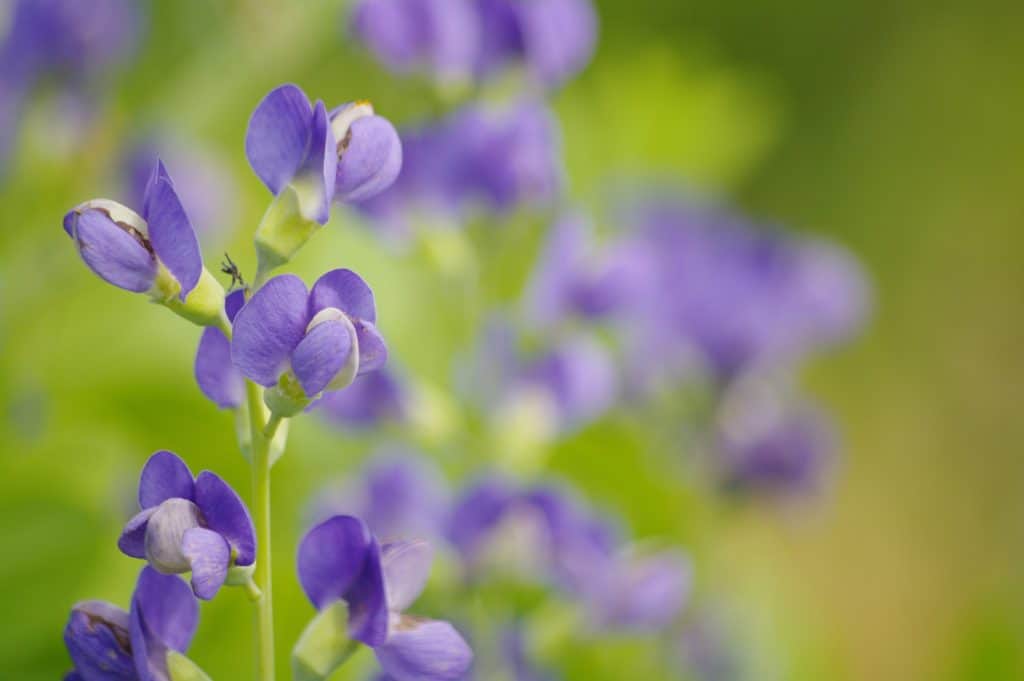
Research indicates that Indigo promotes new hair growth and thickens the hair. It is also very conditioning and increases manageability.
Over time, hair will look softer and more lustrous without the damaging effects of commercial hair dyes.
Discover how to use Indigo to cover grey hair in this post!
The Hair Growth Benefits Of Fenugreek.
Fenugreek is a small, leafy, green plant from the Fabaceae family cultivated worldwide. Ancient Greek and Roman antiquities show traces of Fenugreek.
The dried or fresh leaves make a spice known as Methi on the Indian subcontinent. It is a popular ingredient in cooking, as it has a distinct, sweet smell, similar to maple syrup.
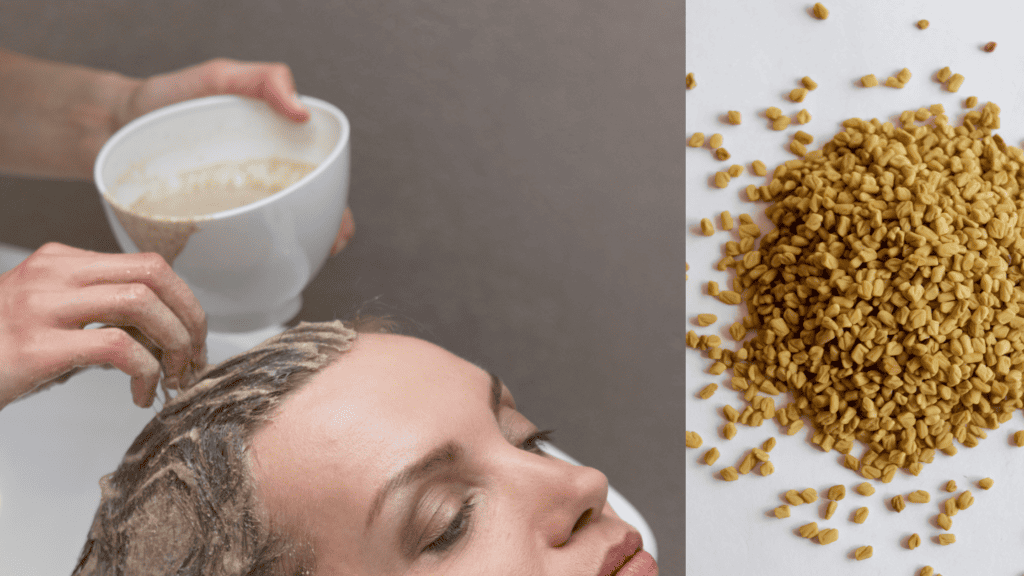
Fenugreek seeds are a rich source of protein; they also contain calcium, copper, potassium, iron, and manganese, plus antioxidant vitamins A, C, and K and a host of B vitamins. They also have antibacterial properties that keep the scalp healthy. The seeds, ground into a paste or powder, are famous for improving and encouraging hair health and growth.
The nutrients in Fenugreek seeds feed the hair and scalp, allowing hair to grow and flourish.
You can also buy Fenugreek seed powder*, a convenient, effective ingredient for DIY Fenugreek hair mask recipes, or add it to conditioners.
Fenugreek tea is also terrific for use as a hair growth recipe; read more!
Fenugreek is widely used and safe for most people but not for use in pregnant women or people with nut or chickpea allergies.
Consult medical advice before using herbs to ensure they are safe for you.
The Hair Growth Benefits Of Amla.
Amla, Phyllanthus Emblica, or Indian Gooseberry, is a deciduous tree with edible fruit referred to by the same name.
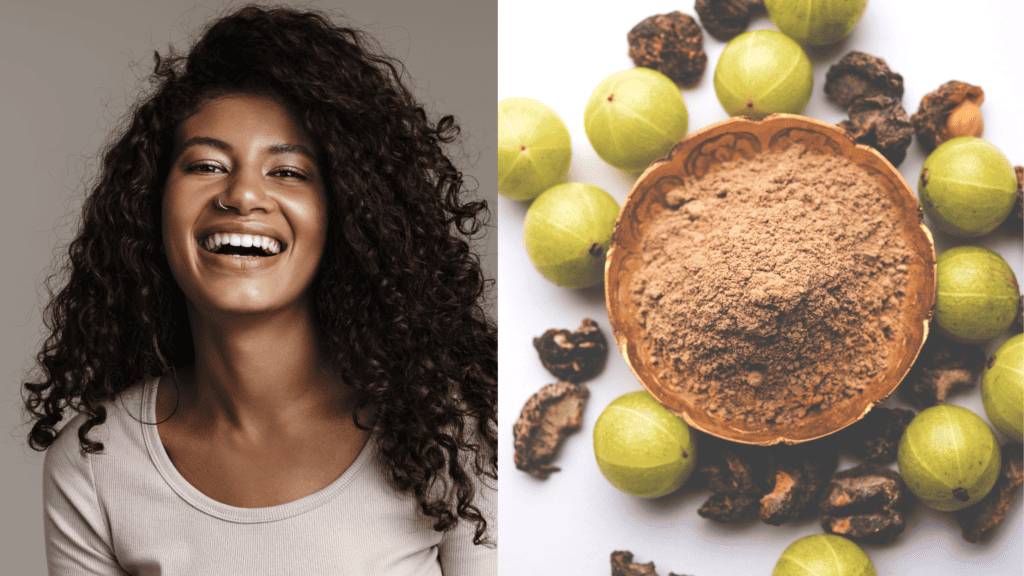
Amla is high in Vitamins C and A and contains polyphenols, amino acids, protein, carbohydrates, calcium, potassium, iron, carotene, magnesium, pectin, and alkaloids. It can be cooked and eaten with other tree parts in traditional Indian medicine and Ayurvedic herbal preparations.
Adding Amla in powder or oil form* to shampoos, conditioners, and hair oils strengthens the hair and scalp, reduces hair loss, and promotes new growth. Studies on this herb for hair show its ability to be a 5a-reductase inhibitor, which works like finasteride and reduces hair loss.
Using Amla regularly can significantly improve the strength and fullness of the hair, leaving an improved appearance throughout and significant growth.
Amla can be orally taken in powder form* and added to drinks, cereals, or smoothies. It can also be mixed into hair masks and products for nutrient-rich benefits.
You can also take Amla capsules* or tablets.
You can also use Amla oil* to massage the hair and scalp.
Making an Ayurvedic powder hair wash/shampoo is a great way to incorporate these herbs into your hair routine for added growth benefits! Get this DIY recipe, which includes Amla!
The Hair Growth Benefits Of Hibiscus.
Hibiscus is a flowering plant that comes from the Mallow family, Malvaceae. There are hundreds of varieties of Hibiscus, and they are known for their large, vibrant flowers, which come in a range of red, orange, and yellow colors.
For thousands of years, the leaves and flowers of the H have improved hair health in various ways. The H thickens and enriches the hair, adding shine and gloss.
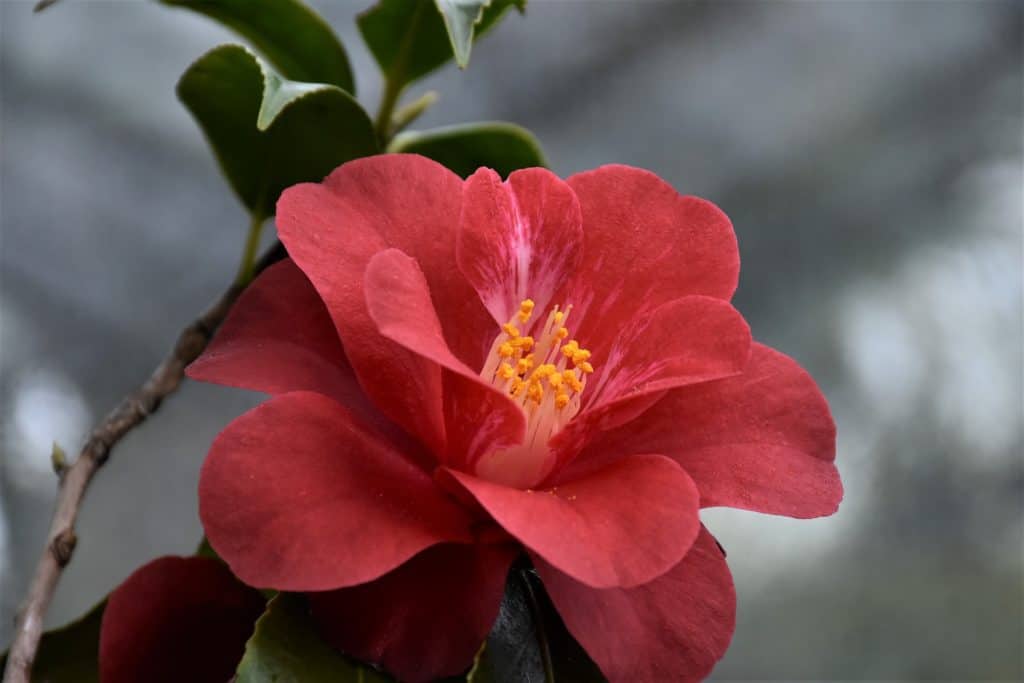
Hibiscus contains much mucilage, which acts as a natural conditioner. It is also used to cleanse the hair and contains vitamins C and E, polyphenols, amino acids, calcium, magnesium, iron, phosphorous, and potassium.
The wide range of minerals and nutrients has anti-inflammatory, antibacterial, and anti-microbial properties that help with graying hair, hair loss, recovery of dormant follicles, and even head lice removal.
If you can access fresh Hibiscus, you can use the flowers and leaves to make DIY hair recipes. They are also available in powder form or as dried flowers.
- Organic | Sustainably sourced | Non GMO | Kosher
Make a hair growth mask using Hibiscus here for soft, full, dense hair!
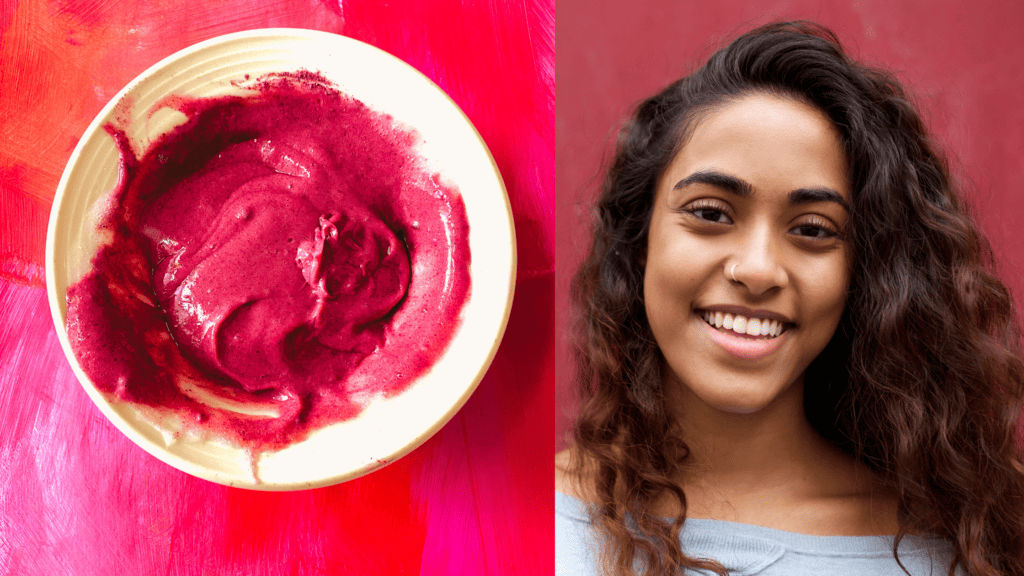
The Hair Growth Benefits Of Brahmi.
Brahmi [Bacopa Monnieri] is a perennial, non-aromatic, creeping herb found in the wet marshes of India, Nepal, China, Pakistan, and Vietnam.
A commonly used and prized herb in Ayurvedic practices, water Hyssop, or Indian Pennywort, is known as the ‘herb of Grace.’
It has been used for thousands of years to rejuvenate the mind and nervous system, promoting clarity, mental focus, balance, and concentration. As hair loss is often related to stress, it is helpful in various hair pack remedies for their calming ability that can help restore hair and increase fullness.
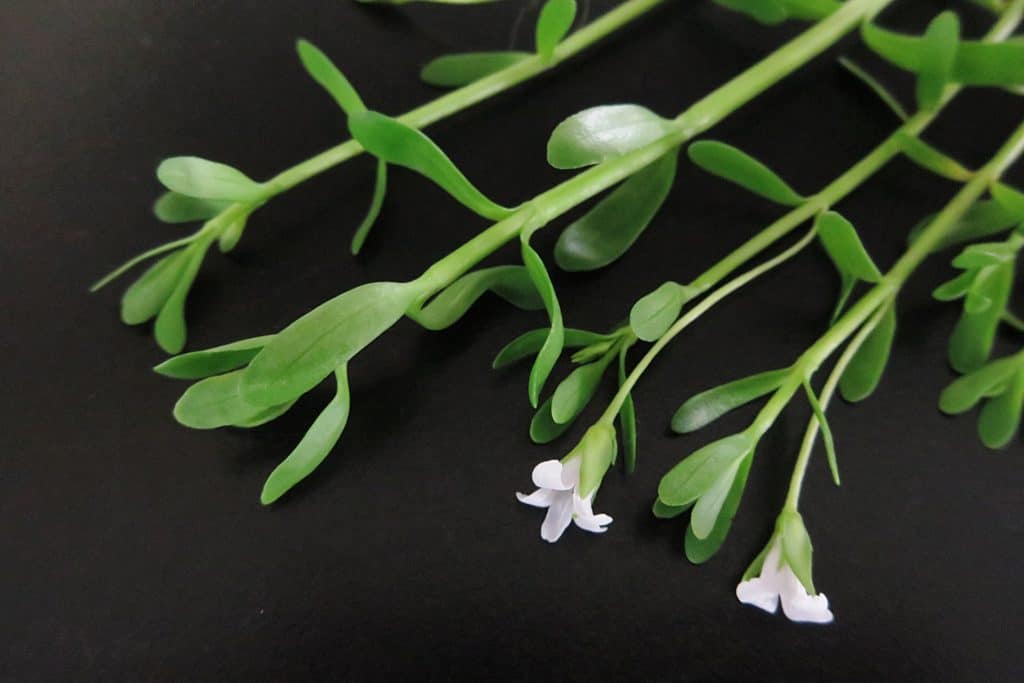
Like many other herbs, it has a range of nutrients that will feed and nourish the hair follicles to strengthen and soften the hair. These include vitamin C, zinc, potassium, magnesium, selenium, and B vitamins.
Brahmi is often added to Henna to aid in hair health; you can also buy Brahmi powder* to put into hair masks and conditioners to get the same benefits for healthy, long, strong hair.
- Brahmi has been used in India for many centuries as a herb that Promotes Hair Growth and Reduces Hairfall.
The Hair Growth Benefits Of Neem.
Neem is an important Ayurvedic herb from the evergreen Neem Tree, which has been grown in India for centuries. It is a super herb in Indian households for its numerous beneficial properties.
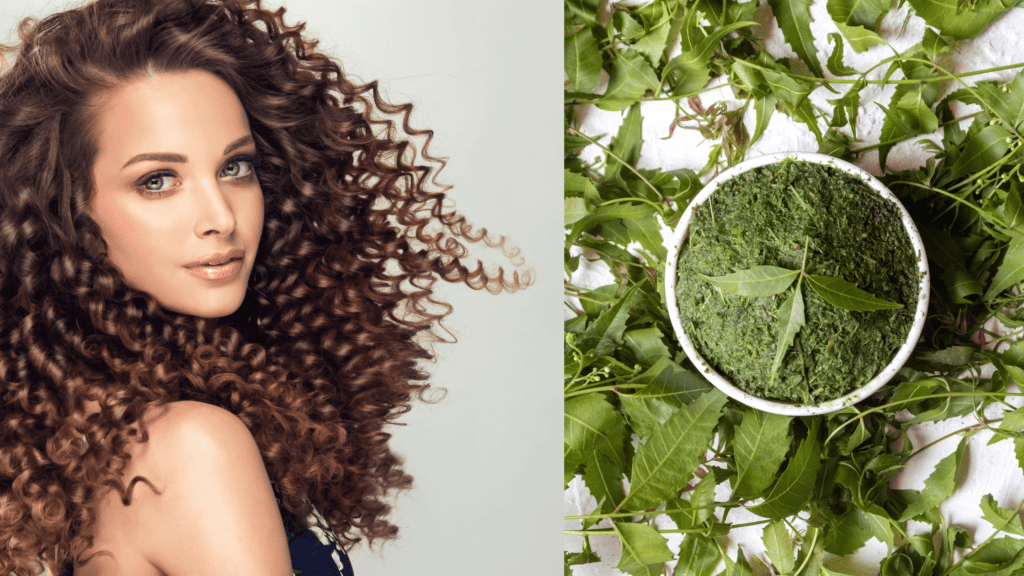
The leaves can be used fresh, or they are expected to be crushed in powder form. It is also commonly used as an oil, pressed from this tree’s seeds and fruit.
Neem promotes hair growth and thickness, slows hair loss, strengthens the hair follicles, soothes frizz, conditions the scalp, and improves the hair’s overall look and feel. Mix Neem powder* into hair DIY treatments and take it internally.
Neem has antibacterial and anti-inflammatory properties. Its active ingredient is nimbin, which suppresses inflammation and is antiseptic and antifungal, promoting a healthy scalp. Massage the hair with Neem oil as a pre-poo treatment.
You can use Neem oil to treat Lice, as it is rich in Azadirachtin, which disrupts the lifecycle of the insects.
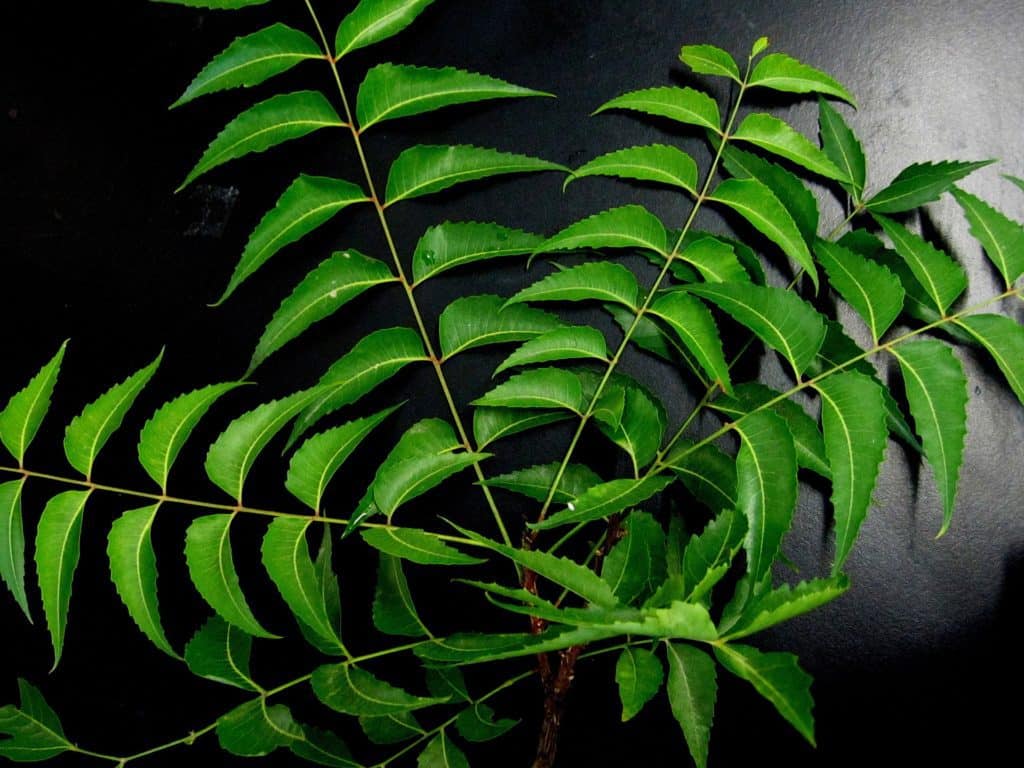
The Benefits Of Tulsi On Hair Growth.
Tulsi, [Ocimum Tenuiflorum}, is an aromatic perennial from the Lamiaceae plant family. In Sanskrit, it is called the ‘incomparable one.’ Another highly prized herb in Ayurvedic practices and Indian households, Tulsi, is the ‘Queen of herbs’ or holy basil.
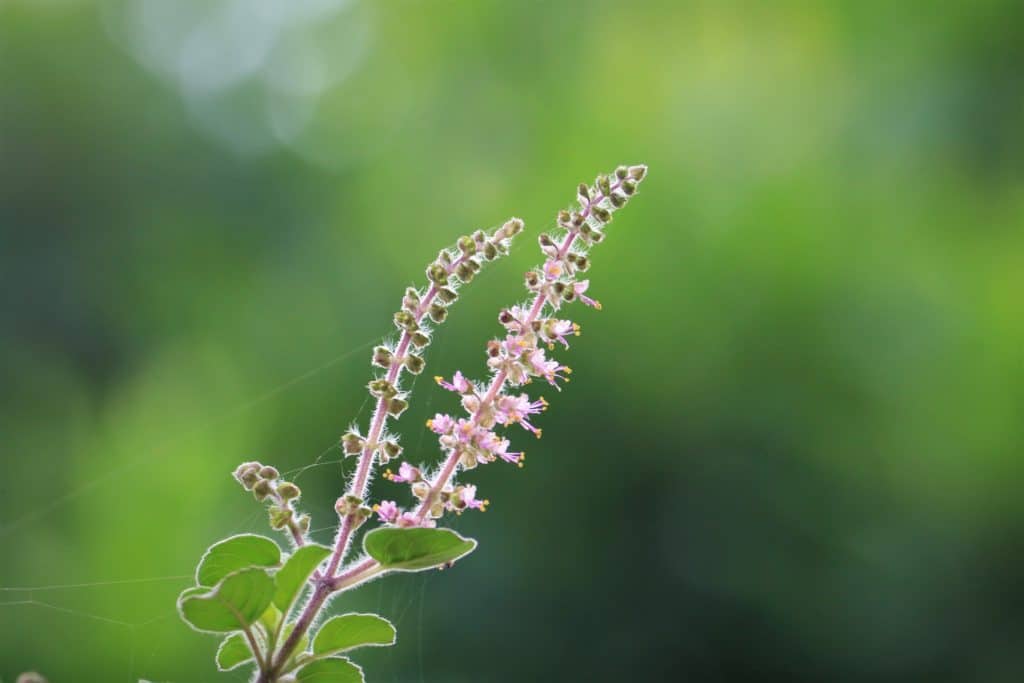
Tulsi comes from the same family of herbs as mint and is used for calming, cooling, and soothing effects.
Tulsi essential oil has a unique composition. Its large percentage of Eugenol makes it antimicrobial, antibacterial, antiviral, and anti-inflammatory.
These properties significantly benefit scalp health and nourish hair follicles, promoting healthier hair growth.
Mix Tulsi powder into DIY hair treatments and masks to reap the rich beneficial nutrients.
Tulsi has many beneficial phytochemical components;
- Oleanolic acid
- ursolic acid
- rosmarinic acid
- linalool
These powerful phytochemicals deliver nutrients to the hair and scalp. Tulsi is a natural conditioner, a remedy for dandruff and damaged hair, and, as part of a regular hair routine, stimulates the growth of thicker, longer hair.
The Hair Growth Benefits of Bhringraj.
Bhringraj, also known as Eclipta Prostrata or False Daisy, is an annual creeping Herb in the Sunflower family. It is a calming herb that promotes longevity, health, and restoration. It is seen across India, Thailand, Brazil, Nepal, and China and is known as the ‘King of Herbs’ for its powerful external and internal benefits.
Throughout India, a Bhringraj hair tonic strengthens the roots of the hair and targets imbalances that cause premature greying, balding, and thinning hair.
Bhringraj is rich in proteins, vitamins E and D, magnesium, iron, and calcium. It also has antioxidant, antifungal, antiviral, and antibacterial properties. These nutrients support, strengthen and maintain healthy hair and scalp.
Bhringraj oil can be massaged on the scalp, feeding the hair follicles and encouraging growth in dormant ones.
Add Bhringraj powder to conditioners and hair masks. Leave on for up to one hour or overnight and wash out with gentle, natural shampoos.
The Safety Of Herbs For The Hair.
Herbs have been used safely and successfully for thousands of years to promote healthy hair, Based on the collective knowledge of generations of people passing their knowledge on to each other. Increasing data shows support for these benefits.
When using herbs for the first time, go slowly and consult medical advice where necessary, especially if you are pregnant, on medications, or prone to allergies.
Always do a patch test to check for sensitivities, then experiment with all the world’s natural herbs. You may well find a hair growth remedy that finally works for you!
This post contains affiliate links marked with a *. If you purchase through these links, we may receive a small commission. This doesn’t affect your sales.
Glowitgreen.com is a member of the Amazon affiliate link program.
